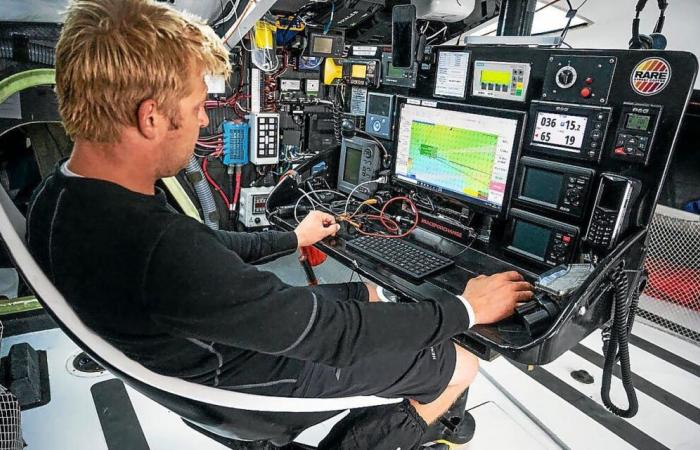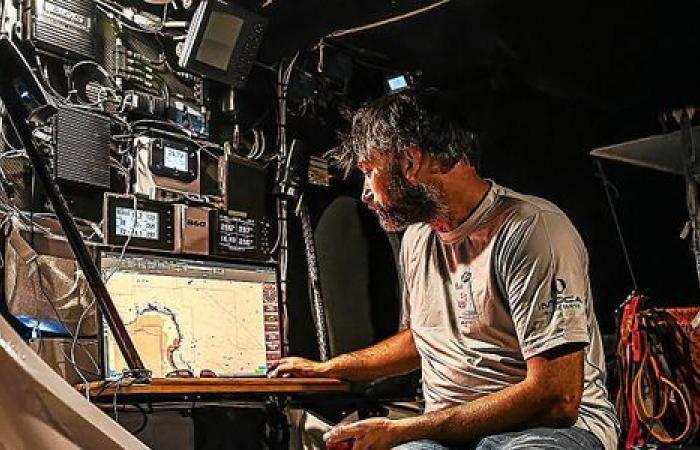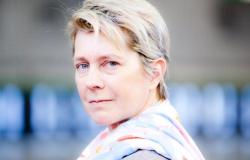Quite simply because it is currently impossible to control exchanges between land and sea. Today, solitary people are ultra-connected and almost all use applications like WhatsApp. It is also from this network that the suspicion of routing was born during the last Vendée Globe between Tanguy Le Turquais, on land, and Clarisse Crémer, at sea. The affair shook the world of boat racing. wide. In the end, the couple was cleared by the jury reconstituted to judge the case.
Whether on a network, by email or by satellite telephone, everyone is free to exchange as they wish, no control filters calls as was, for a time, the case on the crewed world tour with stopovers.
A declaration of honor
Before leaving, all Vendée Globe competitors sign a document where they undertake on their honor to respect the rule of non-assistance. In summary, not to receive “personalized weather assistance”, therefore no routing.
Routing, just the word, poses a problem: in the minds of the general public, routing means “remote guidance”. Authorized on the Route du Rhum, routing is accepted by certain classes, those of Ultime and Ocean Fifty multihulls in particular, but prohibited by other classes, those of Imoca and Class40 monohulls for example.
Routing software
In the Vendée Globe, routing, although it was authorized during the first edition, is prohibited. Each solo sailor must run routing software (we'll come back to that) with their on-board computers and therefore manage alone to plot the best route. Some skippers excel at this and are sometimes as good as weather specialists, those called routers.
Afterwards, there is also remote routing which must be the subject of a request to the race direction, before the start. These are requests for weather data which allow the skipper to query, at sea, computer servers authorized on land. Some competitors are opposed to remote routing. Others are in favor of it.
The debate is complicated. This year, the Imoca class took the bull by the horns and sent a form with more than 100 questions to all skippers on the theme of assistance: whether psychological, medical, technical or weather.
Snitches in 2028?
It emerged that the vast majority (73.8%) of sailors are not against a system of tracking devices on boats. The installation of “data and communications monitoring software” would therefore be the solution but it will not be before the 2028 Vendée Globe.
Technically, we know that shore teams can take control of the onboard electronics while the skipper is sleeping, for example. Even if the onboard data must be made available to the race committee upon arrival, how can we ensure that the 40 skippers participating in this tenth edition will all be clean for three months? Impossible. Failing to be able to control this year, the Imoca class has done a lot of work for this 2024 edition, as Thomas Ruyant explains: “We re-explained the framework so that everyone understood what was behind this “without assistance””.
In this regard, the appendices to the sailing instructions have been refined. With a question in the background: if we cannot control it, should routing be authorized? Which undoubtedly favors the richest teams, capable of affording the best routers on the market.
Medical assistance yes, psychological no
On the other hand, medical assistance is perfectly authorized, as is technical assistance which allows a single person to call ashore to find out how to repair a technical problem. Which is not shocking with machines full of electronics, mechanics, hydraulics. “If technical assistance was prohibited, we would not have 50% of boats arriving but 25%,” says Michel Desjoyeaux, double winner of the event. “To say today that the Vendée Globe is without assistance is a lie,” says Jean Le Cam
And what about the call to a friend, to a loved one, who lifts your spirits from the loner plagued by doubts? “You have the right to medical assistance, not psychological assistance,” says Charlie Dalin. There are nuances.”







